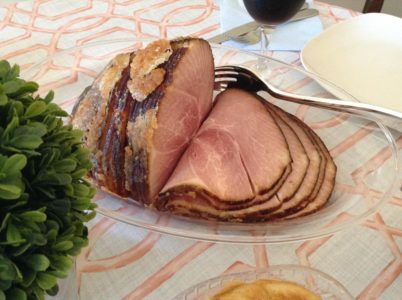
Merry Christmas!! December 25 is just around the corner. Many employers hold a Christmas party to celebrate this time of the year. But, not all employees are Christians. Many don’t celebrate Christmas. Could your Christmas party be a form of religious discrimination?
In summary, Title VII of the Civil Rights Act of 1964 prohibits discrimination in the workplace on the basis of religion. The word “religion” in Title VII includes “all aspects of religious observance and practice, as well as belief, unless an employer demonstrates that he is unable to reasonably accommodate an employee’s … religious observance or practice without undue hardship on the conduct of the employer’s business.” 42 U.S.C. § 2000e(j). Therefore, an employer has a statutory obligation to make reasonable accommodation for the religious observances of its employees, short of incurring an undue hardship. Walden v. Ctrs. for Disease Control & Prevention, 669 F.3d 1277, 1293 (11th Cir. 2012).
Generally, my advice is to make sure employees enjoy the holidays and Christmas celebrations. You won’t violate Title VII merely by having a Christmas party. But, you get closer to trouble if you require employees to attend a Christmas party, or take action against them because of their refusal to participate in Christmas activities. If an employee has a reasonable religious objection to a holiday activity, try to work with them to resolve their objections and accommodate their beliefs. If their religious objection puts an undue burden on your business, call your lawyer before taking any specific action. Following is a discussion of a few cases involving allegations of religious discrimination at Christmas.
Close to home is the decision in Chandler v. Infinity Ins. Group, No. 2:12-cv-2870-TMP, 2014 WL 2547826 (N.D. Ala. Jun. 4, 2014). In Chandler, the employee was a Jehovah’s Witness. She alleged that her employer discriminated against her by forcing her to attend a Christmas party in violation of her religious beliefs. Magistrate Judge T. Michael Putnam dismissed the employee’s claim, however, because she never informed anybody that attending a holiday party would conflict with her sincerely held religious beliefs.
A slightly different fact situation was presented in Mitchell v. American Eagle Airlines, Inc., No. 15-757-SDD-RLB, 2017 Wl 2588597 (M.D. La. Jun. 14, 2017). In Mitchell, a Jehovah’s Witness employee claimed that she suffered religious discrimination when her employer made her work after she refused to attend a Christmas party. The trial court dismissed that claim, primarily because the employee failed “to demonstrate how working during a Christmas party is a cognizable adverse employment action under the law.”
At least one court has found that an employer may refuse an employee’s request to attend Christmas social gatherings — even when those gatherings are closely tied to Christmas mass. See Duran v. Select Medical Corp., No. 08-cv-2328-JPM-tmp, 2010 WL 11493117 (W.D. Tenn. Mar. 19, 2010). In Duran, the employee was scheduled to work as a charge nurse on Christmas day. She made multiple requests to be off-work that day, including a letter to the CEO that concluded: “I would like to remind you that I and my family are Catholic and Christmas day is a very special holy day for us.” Despite those requests, the employee was still required to work on Christmas day. The evidence showed that the employee celebrated Christmas mass from midnight to 1:00 a.m. on December 25. Then, she participated in a family meal and exchange of gifts at home until approximately 5:00 a.m. She was required to be at work at 7:00 a.m. The Court concluded that “the family meal and gift exchange that followed Christmas Mass are not religious practices or observances protected by Title VII. …. Title VII does not protect purely social events.” The Court found that attendance at Christmas Mass is a protected religious observance, but there was no conflict between a mass that ended at 1:00 a.m. and a work schedule beginning at 7:00 a.m.
In at least one case, an employer was required to endure a trial to decide whether an employee was compelled to wear a Santa hat during the holiday season. Velez-Sotomayor v. Progresso Cash & Carry, Inc., No. 01-1678, 279 F.Supp.2d 65 (D.P.R. 2003). The employer required all employees to wear Christmas hats, and the employee refused because of her Jehovah’s Witness beliefs. The employer then suspended her with pay during the Christmas season. The employer’s main defense was that the employee could not explain why wearing a Christmas hat violated a sincerely held religious belief. The trial court found that a jury should resolve that issue.
I hope that all of your days are merry and bright during this Holiday Season!!
